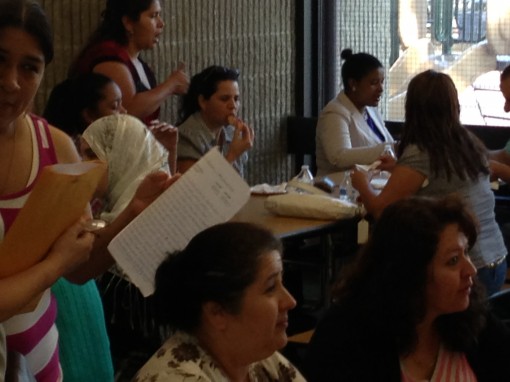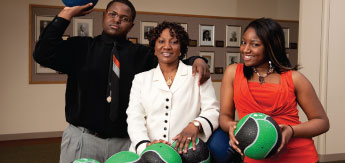 After having to find a new lead organization to take on the MAPP process and spending most of 2012 reorganizing and building new partnerships, the East Boston Coalition, under the leadership of Pat Milano, has made great progress over the last 6 months. After a successful Visioning Session in January, they have just wrapped up their last assessment. Now working with the East Boston Collaborative for Families, the coalition has used key organizing strategies to engage the diversity in the community and empower residents to speak up.
After having to find a new lead organization to take on the MAPP process and spending most of 2012 reorganizing and building new partnerships, the East Boston Coalition, under the leadership of Pat Milano, has made great progress over the last 6 months. After a successful Visioning Session in January, they have just wrapped up their last assessment. Now working with the East Boston Collaborative for Families, the coalition has used key organizing strategies to engage the diversity in the community and empower residents to speak up.
On, June 19th, the East Boston Coalition completed the Forces of Change Assessment at the Mario Umana Academy in East Boston. More than 150 people were in attendance and discussed trending activities that may impact the community positively or negatively, such as the Mayoral election, MBTA construction, or building a casino. Many of the participants were from the Adult Education Program. Residents participated in four languages: English, Spanish, Portuguese, and Arabic, evidence that the coalition is seeking out an often underrepresented immigrant population and welcoming them into the process.
There has been a dramatic shift seen in the demographics in East Boston over the last 10 years. According to the Boston Redevelopment Authority, the population in 2010 was 37% White and 53% Hispanic or Latino, compared to 2000, which was 50% White and 39% Hispanic or Latino (East Boston 2010 Census Population, 2011).
This population change made for a smooth transition to a new lead organization for the coalition.“The East Boston Collaborative for Families needed new data and wasn’t sure what was going on the community with the shift in demographics and were ready to jump in.” Milano continued, “they could then say with some certainty that this is the direction they wanted to go in.”
To date, the East Boston Coalition has completed 14 focus groups, conducted a Quality of Life survey online and has had several key informant interviews. Milano owes much the success to making key partnerships in the community, such as with the Adult Education Program and East Boston Social Center.
“The partnerships and Core Team are really committed and understand the value of gathering new data.” She continues, “the parent population has been very involved, but haven’t been having conversations around health. They talk about early childhood education and housing, but now they are starting to see how these issues are really parts of community health.”
Looking ahead, the MAPP Core Team will review the data collected from the evening’s event, follow up with residents who want to become more involved, and continue to promote the survey online. They hope to start working on identifying strategic issues in the fall.
Milano concludes, “The MAPP process in EB is moving forward with the help of local residents and partner organizations….we need to be mindful of how [demographic change] impacts the community and how we go about collecting data so that it is representative of the neighborhood.”
For more information, please contact Pat Milano, MAPP Coordinator and Co-Chair of the East Boston Collaborative for Families, pmilano@town.winthrop.ma.us.

